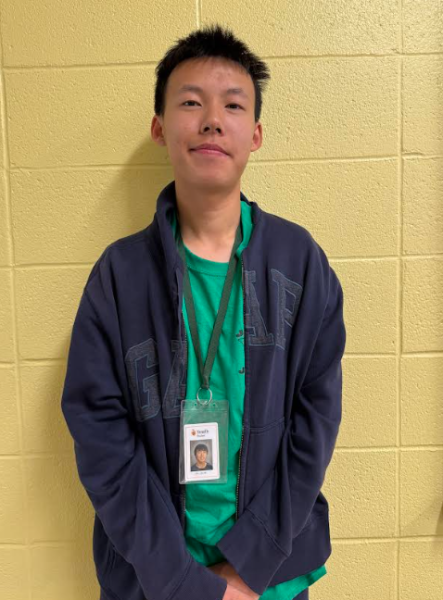At this very moment, Sophia Zhang (’27) has her research being studied in labs at the University of Southern California. For the past year, Zhang has been studying the effects of music on free radicals, which potentially can give rise to the leading causes of death worldwide. Since then, she has had her work played on radio stations such as NPR and WQXR.
Last September, Zhang was contacted by From the Top, the largest platform in the United States that celebrates bright, classically-trained musicians and empowers them to use their music to engage broad audiences. Since then, five high schoolers in the country, including Zhang, have been working with Dr. Assal Habibi, the director of the Brain and Creativity Institute at USC. Her project has primarily focused on how music affects free radical concentrations and oxidative stress in the brain.
To give some context, a free radical is an extremely volatile, unstable electron that builds up in the body. Normally, the body produces antioxidants to counteract these radicals and maintain stable balance, but in certain cases, especially for those with chronic conditions, there is an imbalance of these two, Zhang explained. This leads to oxidative stress, which causes key cellular damage by targeting the cell’s DNA and nucleus directly and destroying it. It is also a key factor in many neurodegenerative diseases. Around 80% of people with conditions such as heart failure, previous strokes, and respiratory disease have oxidative stress. If left unchecked, according to Zhang, free radicals can go on to cause some of the primary causes of mortality, including various forms of cancer, cardiovascular/inflammatory disease, and cataracts, which causes blindness.
Though free radicals are difficult to research due to their unstable nature, Zhang has been able to design a study which involves human and mice intervention to measure interleukins, biomarkers, and other chemicals in the brain through hair and brain blood tissue, respectively.
“Especially for [designing] human studies, the ethical considerations needed to be considered. We wanted to take the samples as harmlessly as possible, so we did it by taking strands of hair,” said Zhang, describing how she designed the experiment.
Zhang has had bi-weekly meetings on Zoom throughout the school year as she has continued to work on the project. During this period, she was able to use research data that hasn’t been published yet from USC’s Brain and Creativity Institute in combination with the findings that the other students have made. During March, Zhang took a week off school after she was invited to fly to Los Angeles to personally play violin music in-person for radio stations, including NPR and WQXR. A link for the podcast can be found here.
In addition, Zhang and the other four students recorded their own films, which will be released later this year to document their experiences. One of her personal highlights of the trip was being able to have her MRI conducted in a lab. Zhang was able to watch how music impacted the various areas of her brain as she listened to enjoyable music and played some of her childhood songs.
Since then, Zhang has continued to receive updates from USC about her project’s progress. She also presented about free radicals and oxidative stress at Tenafly High School’s Science Research Symposium this past Thursday.
“The connection between music and science has been studied before, but it has been mainly focused on stress. That’s what I wanted to highlight with my work: though listening to music can reduce stress, there is also a real biological impact [of music] that people tend to overlook. Some people say that music just improves your mood, but it also really helps your body as well. That’s what we are trying to investigate,” said Zhang, when asked about her research.
While Zhang is currently unable to go to Los Angeles, her research has moved into Phase II, which involves investigating the effects of music on approximately 100 adults from ages 40 to 60. She looks forward to continuing her research about this fascinating topic.















































































































































